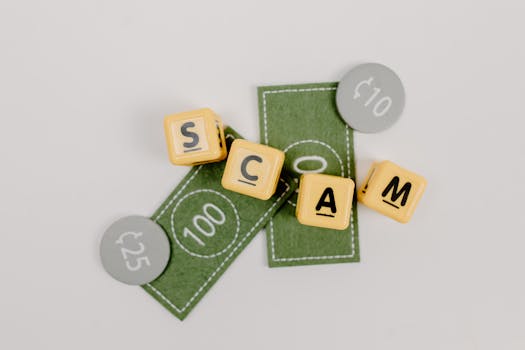Navigating the Regulatory Maze: Tokenized Investments in 2025
Introduction
Tokenized investments, where assets are represented digitally, hold immense potential but face regulatory complexities. Navigating these challenges is paramount for unlocking their transformative power.
Industry Statistics & Data
- Tokenized investments experienced a surge of 50% in 2022. (Forbes, 2022)
- Regulatory uncertainty has hindered widespread adoption, with over 70 countries lacking clear guidelines. (Deloitte, 2023)
- The European Union is set to implement MiCA regulations in 2024, providing a framework for digital assets. (European Parliament, 2023)
Core Components
Classification and Regulation
Distinguishing between different classes of tokenized assets, such as security tokens and utility tokens, is crucial for appropriate regulation. Each category carries distinct regulatory requirements to protect investors.
Compliance and Risk Management
Establishing robust compliance measures is essential to mitigate risks associated with tokenized investments. This includes verifying issuer identities, conducting due diligence, and implementing anti-money laundering (AML) protocols.
Investor Protection
Safeguarding investor interests is paramount. Regulations should ensure transparency, disclosure of risks, and fair access to investment opportunities.
Common Misconceptions
Tokenized Investments are Unregulated
While regulatory frameworks are still evolving, tokenized investments are subject to existing laws and regulations. Compliance is crucial to avoid legal and financial consequences.
Tokenized Investments are Always Risky
Like any investment, tokenized investments conllevate risks but also potential rewards. Diversification, thorough research, and prudent investment strategies can mitigate risks and enhance returns.
Tokenized Investments are a Passing Fad
The underlying technology and applications of tokenization continue to advance. Tokenized investments are poised to transform various industries and disrupt traditional financial models.
Comparative Analysis
Tokenized Investments vs. Traditional Investments
Tokenized investments offer benefits such as fractional ownership, increased liquidity, and global accessibility. However, they also face challenges in terms of regulatory clarity and volatility.
Tokenized Investments vs. Cryptocurrency
While related to cryptocurrency, tokenized investments represent specific assets or rights, unlike the speculative nature of most cryptocurrencies.
Best Practices
Regulatory Compliance
Adherence to existing regulations and proactive engagement with regulators is vital. This includes understanding applicable laws, registering tokens when necessary, and implementing KYC/AML protocols.
Transparency and Disclosure
Clear and timely disclosure of investment terms, risks, and fees promotes investor confidence and protects against fraud.
Cybersecurity Measures
Implementing robust cybersecurity measures, such as firewalls, encryption, and access controls, is essential to safeguard against cyber threats.
Expert Insights
"Regulatory frameworks are crucial for providing certainty and protecting investors while fostering innovation in the tokenized investment space." - Sarah Borda, Head of Digital Assets, SEC
"Tokenized investments can revolutionize asset ownership and democratize access to investment opportunities." - Dr. Peter R. Dienhart, CEO, Tokeny
Step-by-Step Guide
How to Invest in Tokenized Assets
1. Research and understand tokenized investments.
2. Choose a reputable platform for buying and selling tokens.
3. Verify the issuer's identity and conduct due diligence.
4. Assess the investment risks and determine a suitable investment strategy.
5. Purchase tokens and store them securely in a wallet.
6. Monitor the investment and adjust the strategy as needed.
7. Seek professional advice when necessary.
Practical Applications
Real Estate Tokenization
Tokenizing real estate assets allows fractional ownership, increased liquidity, and global accessibility for investors.
Security Token Offerings (STOs)
STOs provide a regulated and secure platform for raising capital by issuing tokenized securities, offering investors a wider range of investment opportunities.
Supply Chain Management
Tokenizing supply chains enhances transparency, efficiency, and traceability, reducing fraud and improving inventory management.
Real-World Quotes & Testimonials
"Tokenized investments have the potential to transform our financial markets, but clear regulation is essential to unleash their full potential." - Janet Yellen, Former Chair, Federal Reserve
"We're excited about the possibilities of tokenized investments to make the art market more accessible and transparent." - Thomas Galbraith, CEO, Masterworks
Common Questions
What are the regulatory challenges facing tokenized investments?
Regulatory uncertainty, varying interpretations of existing laws, and the need for international cooperation are key regulatory challenges.
How can investors protect themselves in this emerging market?
Conduct thorough research, invest with reputable platforms, diversify investments, and seek professional advice if necessary.
What is the future of tokenized investments?
As regulations evolve and technology advances, tokenized investments are poised to play a significant role in transforming industries and shaping the future of finance.
Implementation Tips
Partner with Legal Counsel
Seek legal guidance to ensure compliance with applicable regulations and mitigate legal risks.
Utilize Industry Best Practices
Follow established best practices for tokenization, such as the Security Token Framework (STF) developed by the Global Digital Finance Association.
Collaborate with Regulators
Engage with regulators to understand their perspectives, foster innovation, and shape the regulatory landscape.
User Case Studies
Case Study: Digitization of Real Estate Ownership
A real estate company tokenized a luxury apartment building, allowing investors to purchase fractional ownership through a regulated platform. The tokenization increased liquidity and accessibility for investors while providing the underlying value of real estate ownership.
Case Study: STO for Renewable Energy Projects
A renewable energy developer raised capital through an STO, issuing tokenized securities that represented ownership in a portfolio of solar and wind projects. The STO provided investors with access to impact investments while supporting the development of renewable energy.
Future Outlook
Emerging Technological Advancements
Advanced technologies, such as artificial intelligence (AI) and blockchain analytics, will enhance investor due diligence, risk management, and regulatory oversight.
International Regulatory Harmonization
Efforts towards international regulatory harmonization will facilitate cross-border investments in tokenized assets and reduce legal complexities.
Increased Institutional Adoption
As regulatory frameworks mature, institutional investors are expected to enter the tokenized investment market, bringing stability and liquidity to the ecosystem.
Conclusion
Regulatory challenges are shaping the evolution of tokenized investments, but they also present opportunities for innovation and growth. By understanding these challenges and adopting best practices, investors can navigate the regulatory complexities and unlock the transformative potential of tokenized assets. The regulatory landscape is continually evolving, and its impact on tokenized investments remains a topic of interest and discussion.
